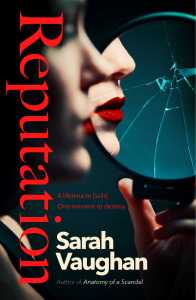March 27, 2022 · 5:47 p.m.
Time has run out for me again this month, so I’m just doing a review of the books I read in February starting in February. No one here reads Tolstoy by Mark Hodkinson. His bibliographic part details how he became a sympathetic reader in Rochdale in the mid-1970s in the history of cultural history in a staff house with very few books, eventually subjugated by what Americans call BABLE (Book Accumulation Beyond Life Expectancy). identify with this, and I’m sure many readers of this blog can do the same). The book also tells the story of a grandfather who suffered from a mental illness. Hodkinson is very good at studying the mindset of a collector, and I especially liked the last half of the book, which explains his career as a local newspaper, publisher, and writer. Local journalism in particular has changed without recognition since Hodkinson began. Overall, “No One Reads Tolstoy Here” is structurally curious and not as straightforward as the memory of a book I expected, but it’s still very enjoyable and nostalgic to read.

 My Phantoms by Gwendoline Riley He recounts his close relationship with fifty-year-old academic Bridget Grant and her twice-divorced mother Helen, also known as Hen. Bridget’s father, Lee, died a few years ago, and a sharp portrait of the pen in the first part of the novel shows that his controlling behavior has not been lost. For many years, Bridget and Hen only saw each other from time to time, until Henen’s health problems began to draw closer to each other. The dynamic between them is overwhelming and certainly lingers in the question of how Bridget treats her vulnerable mother and the extent to which her dysfunctional behavior has inherited or influenced her parents. It is a short but well-written novel with a full ending.
My Phantoms by Gwendoline Riley He recounts his close relationship with fifty-year-old academic Bridget Grant and her twice-divorced mother Helen, also known as Hen. Bridget’s father, Lee, died a few years ago, and a sharp portrait of the pen in the first part of the novel shows that his controlling behavior has not been lost. For many years, Bridget and Hen only saw each other from time to time, until Henen’s health problems began to draw closer to each other. The dynamic between them is overwhelming and certainly lingers in the question of how Bridget treats her vulnerable mother and the extent to which her dysfunctional behavior has inherited or influenced her parents. It is a short but well-written novel with a full ending.
 The best brands for striking skin Ministry of the Body by Seamus O’Mahony, O’Mahony worked as a gastroenterologist consultant teaching medical memory to determine life in a large hospital in Ireland, until he retired in February 2020, when the pandemic was emerging. O’Mahony’s collection of anecdotes based on his last year’s notes is much more fragmented than a formal diary. The outlines of his patients in general medicine wards are generally very short, and the impact of bureaucratic management and budget cuts is noticeable in the background. O’Mahony’s dry, cynical honesty as he reflects on the state of the hospital is reminiscent of Henry Marsh’s books, even those written at the end of his career. Having read quite a few medical memoirs in recent years, I don’t think ‘Body Ministry’ adds anything new or original to the genre, but it’s still an interesting read if you enjoy books like this.
The best brands for striking skin Ministry of the Body by Seamus O’Mahony, O’Mahony worked as a gastroenterologist consultant teaching medical memory to determine life in a large hospital in Ireland, until he retired in February 2020, when the pandemic was emerging. O’Mahony’s collection of anecdotes based on his last year’s notes is much more fragmented than a formal diary. The outlines of his patients in general medicine wards are generally very short, and the impact of bureaucratic management and budget cuts is noticeable in the background. O’Mahony’s dry, cynical honesty as he reflects on the state of the hospital is reminiscent of Henry Marsh’s books, even those written at the end of his career. Having read quite a few medical memoirs in recent years, I don’t think ‘Body Ministry’ adds anything new or original to the genre, but it’s still an interesting read if you enjoy books like this.
 Sarah Vaughan’s fame It is a thriller about the story of Labor MP Emma Webster, a divorced former teacher whose life begins to break down when a body is found at the bottom of her stairs and her teenage daughter is involved in a bullying scandal at school. The novel is an up-to-date analysis of a wide range of current issues, including social media trolling, revenge pornography, and the portrayal of women politicians in the media, and how to navigate a balanced work life so that their male colleagues are less likely. likely to be considered. The court scenes in the second part are tense but a bit repetitive, but overall the ‘Reputation’ is elegantly written and provides a realistic portrait of the life of the Westminster bubble thanks to Vaughan’s experience in journalism. Many thanks to Simon & Schuster for submitting a review copy via NetGalley.
Sarah Vaughan’s fame It is a thriller about the story of Labor MP Emma Webster, a divorced former teacher whose life begins to break down when a body is found at the bottom of her stairs and her teenage daughter is involved in a bullying scandal at school. The novel is an up-to-date analysis of a wide range of current issues, including social media trolling, revenge pornography, and the portrayal of women politicians in the media, and how to navigate a balanced work life so that their male colleagues are less likely. likely to be considered. The court scenes in the second part are tense but a bit repetitive, but overall the ‘Reputation’ is elegantly written and provides a realistic portrait of the life of the Westminster bubble thanks to Vaughan’s experience in journalism. Many thanks to Simon & Schuster for submitting a review copy via NetGalley.
Filed under Books






